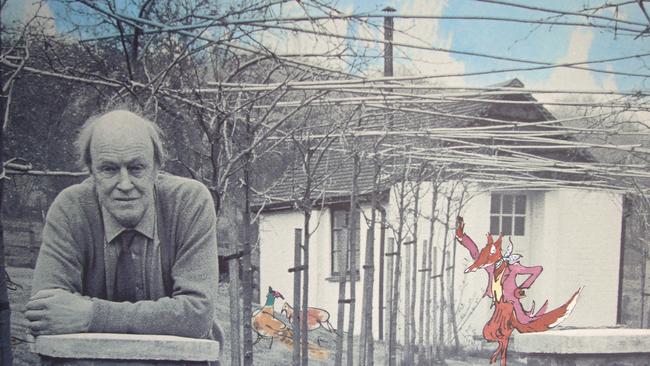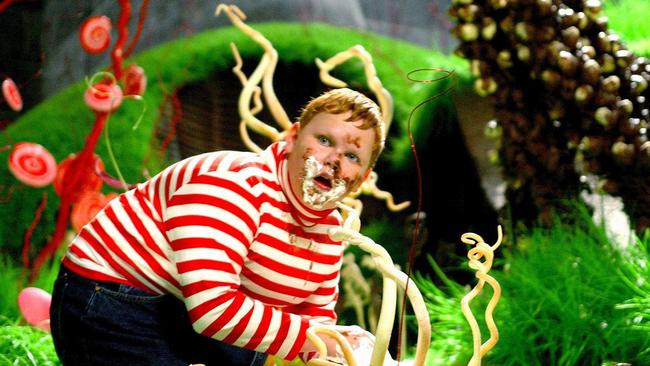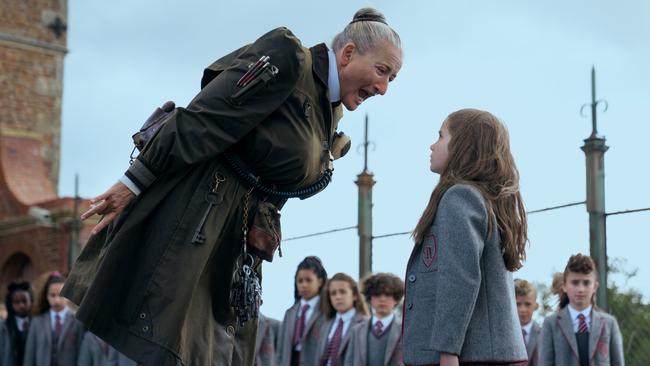Charlie and the censorship factory
Sensitivity readers have messed with the magic of Roald Dahl’s books. Kids should be allowed to read them in their full, nasty, colourful glory.

I grew up devouring Roald Dahl’s stories. His wonderful imagination, his ability to turn a phrase, his brilliantly colourful characters all fostered a love of reading that led me towards a career in books.
As a seven-year-old, I saw myself as Matilda more than any other character and spent a considerable amount of time trying to move objects via the power of my brain.
In many ways Dahl’s stories aren’t brilliant in spite of the darkness; they are brilliant because of it. It’s the threat of being locked in the Chokey, or forcing Bruce Bogtrotter to gorge on a giant chocolate cake that makes Matilda such a gripping read. The thought of female demons with claws, square feet and bald heads, masquerading as normal women as in The Witches, seems to tap into a deeply rooted childhood fear that the adults who take care of you might turn out to be evil.
And don’t we feel even a little bit smug when the horrible, spoiled children in Charlie and the Chocolate Factory get their sadistically designed comeuppance?
Dahl’s characters have enchanted generations of children, but today’s youngsters will be forced to settle for a censored, altogether more sanitised version of his outlandish stories: his publisher Puffin, has made hundreds of changes to his children’s books to make them more palatable for contemporary readers.

A note on the copyright page of each title explains: “This book was written many years ago, and so we regularly review the language to ensure that it can continue to be enjoyed by all today.”
To “enjoy” these stories, the bigwigs at Puffin clearly believe, the gluttonous Augustus Gloop from Charlie and the Chocolate Factory cannot possibly be “fat”; he must simply be “enormous” (come on, we all know he isn’t tall). Miss Trunchbull cannot have her “great horsey face”; she just has a “face” now.
Puffin used sensitivity readers in its effort to bring Dahl up-to-date. They have suggested edits of his writing about gender, mental health, weight, race and violence. Originally popular in the US, sensitivity readers, who are hired to review manuscripts before publication to check for stereotypes or offensive language, are increasingly common in the British publishing industry.
Many of the changes to Dahl’s books seem minor: “I’d knock her flat” becomes the much more diplomatic “I’d give her a right talking to”.
Other changes are just patronising. The Witches once imagined a woman “working as a cashier in a supermarket or typing letters for a businessman”. Now she might be “working as a top scientist or running a business”. Are there no women cashiers now? Rather than going “white as a sheet”, the Queen’s maid in The BFG now goes “still as a statue”.

Dahl can’t even poke fun at a tortoise. In Esio Trot, tortoises can read backwards because they are “very backwards creatures”. Now they can read backwards ... just because. When Boggis, Bunce and Bean set out on tractors to destroy the foxes’ home in Fantastic Mr Fox, the animals once noted that the machines were “black ... murderous, brutal-looking monsters”. The tractors are no longer black, just in case a fox was being racist.
There are instances, of course, in which it is essential to edit older books. Agatha Christie’s And Then There Were None once had a very different title, featuring the N-word. That should not have been allowed in 1939, and it is disgraceful the title remained so in the UK until 1985.
It is true, too, that Dahl was a very nasty man - a racist, misogynistic, antisemitic bully. He cheated on his wife, said that seducing women was “ridiculously easy, like manipulating puppets”, and was a nightmare to work for (his first publisher dropped him). His antisemitism is perhaps most shocking: he said of Jewish people, “even a stinker like Hitler didn’t just pick on them for no reason”. Even when Dahl was writing, his editors rightly made him remove offensive content, such as the stereotypically black features he first gave to the evil giants in The BFG.
But if we are to stop reading children’s books by authors who are nasty people, or to remove any instances of violence or rudeness or sexism, we’ll be left with very few. You can kiss goodbye to Enid Blyton - look at sexist gender roles in The Famous Five (I wondered why Anne was always left to do the cooking). And what about Beatrix Potter? Will the hedgehog washerwoman Mrs Tiggy-Winkle be rewritten as a “girlboss” civil engineer?
Children can be nasty little creatures, and Dahl knew it. His power was in harnessing both light and darkness, but ensuring good, kind children always won the day over bad counterparts, and over tyrannical adults. He trusted young readers to tell good from bad, and we should trust children to do the same.
The Puffin editors should be ashamed of their botched surgery on some of Britain’s finest children’s literature. I’ll be stowing away my original copies of Dahl’s stories, so that one day my children can enjoy them in their full, nasty, colourful glory.
The Times







To join the conversation, please log in. Don't have an account? Register
Join the conversation, you are commenting as Logout